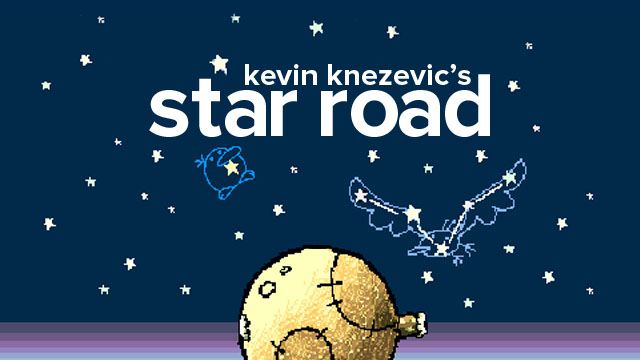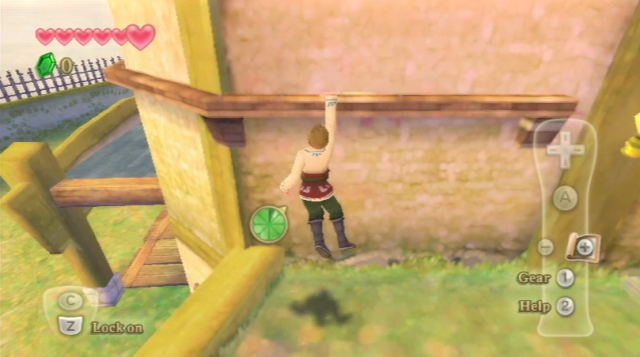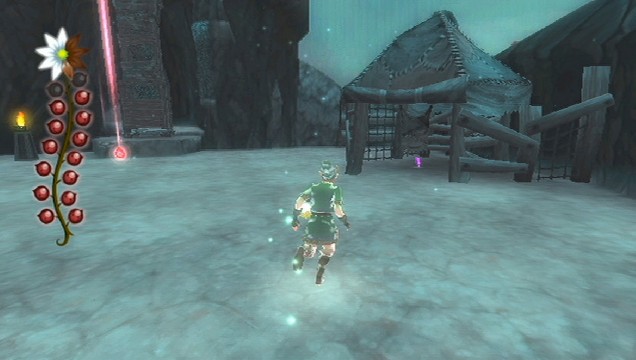
The following article contains spoilers for The Legend of Zelda: Skyward Sword.
In my last article, I briefly mentioned that Skyward Sword borrowed too frequently from its predecessor, Twilight Princess, to be anything more than another iteration on the same formula, an opinion which may seem to contradict the media’s general consensus of the title. After all, this was the game that was supposed to redefine the franchise as we knew it– even before it was officially announced, Nintendo promised that Skyward Sword would signal the beginning of a new direction for the series, and many reviews generally seemed to agree with this statement, calling it the freshest Zelda adventure since whatever favorite that particular critic had in mind.
In truth, Skyward Sword does very little to advance the series forward. Beneath its “fresh” exterior lies the very same formula that was established by A Link to the Past (and canonized by Ocarina of Time), only now it has been padded– especially in the later portions of the game– in a misguided attempt at shaking up the adventure. Rather than looking to past titles for inspiration on how to progress the series (as EAD Tokyo did with Super Mario Galaxy), Skyward Sword contents itself with retreading the same ground that Twilight Princess walked, filling out any lapses in its narrative with arbitrary fetch quests that neither fit within the context of the game nor evolve its formula in a meaningful fashion.
This is a shame because the title starts off promising enough. It’s true Skyward Sword may have inherited the pacing issues of Twilight Princess (especially during its introductory chapter), but right from the outset the game tries to differentiate itself from its predecessors. Unlike past titles, Link now boasts a stamina meter and can dash with the press of a button, which is immediately useful for scaling tall objects and sprinting up hills. He also begins with considerably more health than any of his other incarnations, reinforcing the game’s emphasis on intelligent foes and careful swordplay. Together, these tweaks, as simple as they may seem in light of Nintendo’s large promises, open up new avenues of design and help freshen the series’ mechanics, which were quickly becoming rote in their familiarity.

These kinds of tweaks even extend into your first few trips to the surface as well. Like Star Fox Adventures, the environment preceding a dungeon now feels like a dungeon in itself, playing host to its own share of puzzles to solve and items to collect. Link will have to use his wits to successfully navigate these complex areas, and even then he’ll be greeted with another set of challenges for his efforts. The transition between field and temple is much more organic because of this; there’s no clear demarcation in where one ends and the other begins (indeed, the game continues to blur this line throughout its second “act,” culminating in a masterful lead-in to the fifth dungeon), keeping the player consistently engaged throughout the entire experience.
Unfortunately, while these changes represent a natural evolution of the Zelda gameplay, the title does nothing to address the series’ most pressing issue, its strict adherence to an aging formula. You’ll quickly realize that, like Wind Waker and Twilight Princess before it, the first arc of Skyward Sword takes you through a sequence of three traditionally-themed dungeons, after which you are given an important item (in this particular case, the Goddess’s Harp) as well as a new set of MacGuffins to collect (the sacred flames needed to temper your sword). What’s particularly egregious about this decision is not so much that the template is broken (it certainly isn’t, as Twilight Princess can attest), but rather that it makes the entire adventure far too predictable. Even with a host of mechanical changes to its foundation, Skyward Sword still feels very much like any other Zelda game before it thanks to the way it’s structured, and any sense of newness to the affair is constantly undermined by this familiar framework.
This wouldn’t be near as offensive if the adventure wasn’t broken up by the game’s most grievous of sins, the “trials” Link must undertake before he can be deemed worthy of possessing the flames. These tests come in the form of tear hunts, which fans will notice have been lifted wholesale from Twilight Princess (and populated with the unbeatable foes from Phantom Hourglass). Not only are these tests a chore to complete, but they simply feel out of place within the context of the game– in Twilight Princess, Link had to collect these tears each time he entered a new part of Hyrule in order to dispel the Twilight that shrouded the area; in Skyward Sword, they amount to little more than busywork, an arbitrary objective standing between you and the next dungeon. These tasks were far more excusable in Twilight Princess because they were rooted in that title’s narrative (and were simply not as tedious to collect thanks to the relative placidity of the Twilight Realm), and while Skyward Sword does try to justify their presence in its own storyline, they nevertheless feel like a transparent way of extending your journey. Likewise, the tadtone hunt that Link undertakes a little further into the game reeks of this same sense of desperate padding, as if the designers, in their attempts to shake up the formula that has guided each major installment of the series since before the turn of the century, had forgotten how to properly structure an adventure.

What’s more, many of the other changes that have been enacted have no real bearing on the gameplay, rendering them largely pointless. Defeated enemies, you’ll notice, now have a chance of dropping loot, which can be used to augment certain weapons in your arsenal. On paper this may sound like beneficial addition to the series, one that could impart a new level of strategy to item management and combat, but in practice it proves to be the game’s most superfluous change. Even when upgraded, your weapons don’t gain any particularly noteworthy characteristics outside of increased strength or durability, which makes them no more functional than their base counterparts (especially as few of them are fit for battle). The only items that truly benefit from this mechanic are the various shields that you obtain, but even these are undermined by the inclusion of the Hylian Shield, which is completely impervious to all forms of damage. There’s simply little incentive to grind for treasures and upgrade your current shield when it’ll ultimately be relegated to the item check, thus squandering whatever potential this mechanic had.
Of course, even in spite of these flaws Skyward Sword is still a fine installment in its franchise, and its successes (the sword controls, for instance, are perfectly implemented and add a visceral sense of satisfaction to the combat, and the dungeons rank among my favorites in the entire series) more than compensate for its few missteps. That being said, we should still take it to task for its failings, especially in light of its long gestation period and litany of unfulfilled promises. The final game is simply not the revolution it was made out to be, and its attempts at innovation leave me questioning whether or not the Zelda team is even capable of moving the series forward. There are certainly some promising ideas on display (particularly during the early portions of the adventure), but the game’s reliance on the standard Zelda formula and its incessant padding ultimately undermine whatever progress it makes. Whether or not Skyward Sword is truly a glimpse at the series’ future is no clearer now than it was before its release (especially with the unveiling of Wii U’s tablet controller), but the team at Nintendo will have to carefully assess the game’s design (and not simply reiterate on the same formula) if they hope to keep the franchise relevant in generations to come.




 ShareThis
ShareThis






